ATHLETE’S JOURNAL
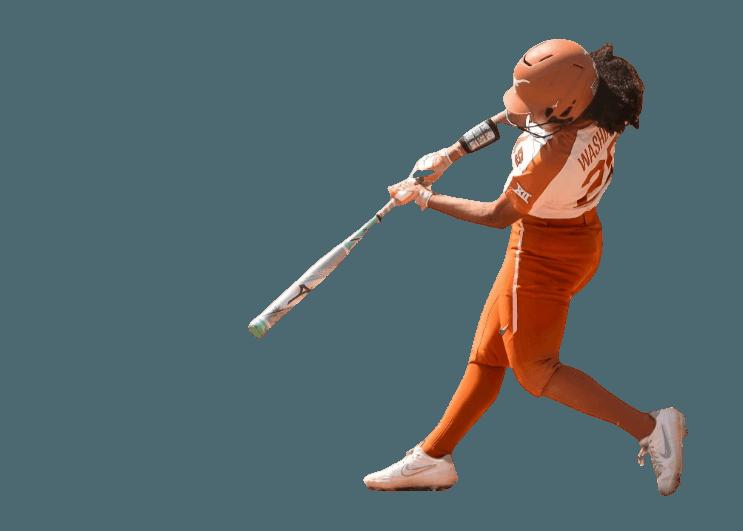
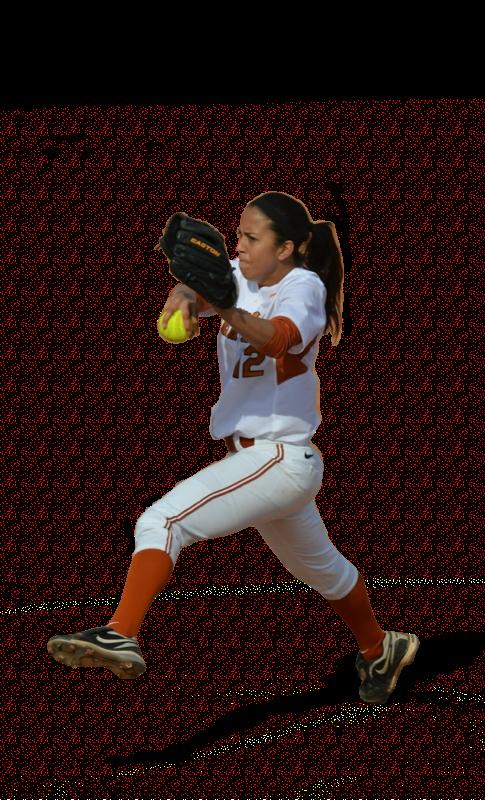
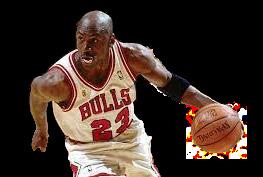
EZINE SPRING 2023
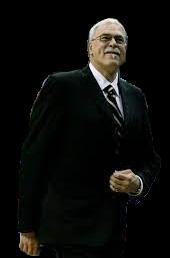

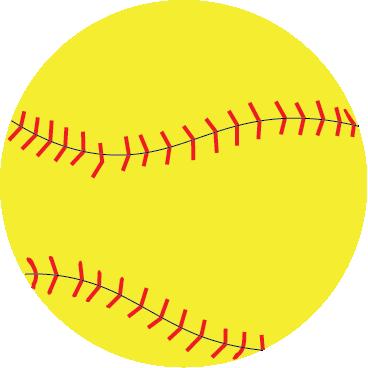
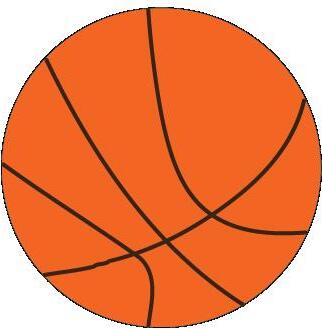
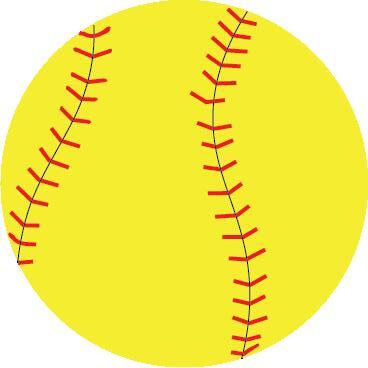





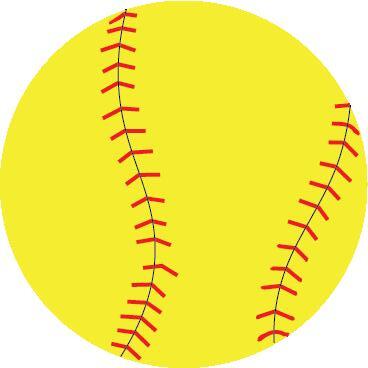
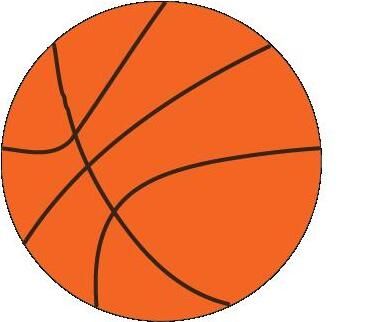





















Table of Contents
Pages 6-7: Letter from the Editors
Pages 8-11: From a Coach’s Perspective
Pages 12-13: Learning a Sport vs Perfecting a Sport

Pages 14-17: From Competing to Coaching
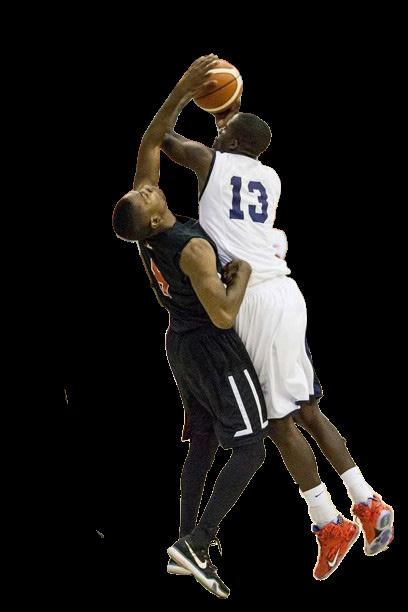
Pages 18-19: Superstar Softball Stats
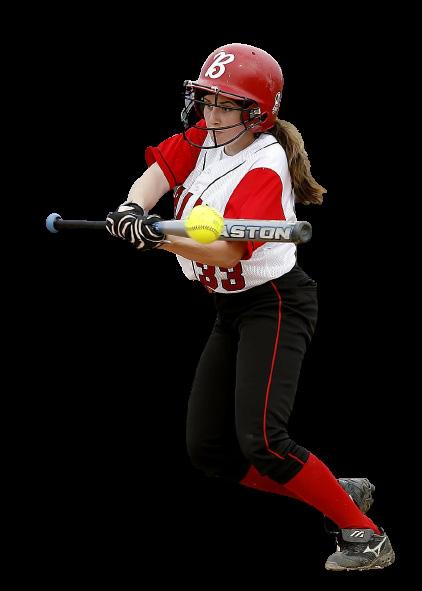
Pages 20-23: Get the Most out of Child a Parent Relationship in Basketball
Pages 24-25: How to Throw a Softball
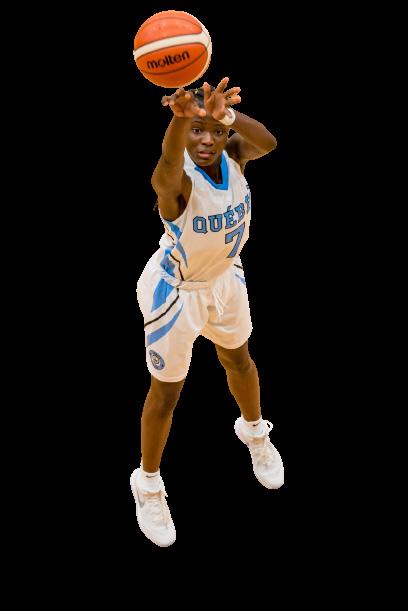
A Letter from the Editors
This is Isabella. She is a Freshman at Lasa highschool and is a guard for the basketball team and loves softball being on the softball team for Lasa as well. Isabella is ambitious, always determined to learn, and is a laid-back person. Her hobbies consist of working out, playing basketball, and playing softball. Her love for sports brought her to this group and it allowed her to write freely about sports. Other than her love for sports Isabella wants to be an entrepreneur after she graduates.

Joaquin Cruz is a point guard on the Lasa basketball team. Alongside basketball, he also loves playing the guitar. His favorite song to play is called Tango. His favorite meal is Mac and Cheese because he can customize the food just to his liking. He doesn’t care if people think he’s basic, he knows how great Mac and Cheese is and anyone who doesn’t agree is missing out. After he graduates, Joaquin would like to become a software engineer, or pursue music. Joaquin stands out from the rest, because he would never back down from a challenge. He is ready to try anything interesting that may come his way.

Rose Harrelson is a freshman student at Lasa High school. She is going to write an article about multiple players on the UT softball team and the coaches that they turn into afterwards. She loves to play sports, usually the ones that are available to her at the time. She likes to play sports, because she finds them fun, she finds them exciting and relaxing at the same time. After she graduates high school she wants to become a softball coach and be an umpire on the weekends. Rose enjoys Ethiopian food. Rose is a very interesting character with a vibrant, extroverted personality. She doesn’t stop to think about what other people think about her, she is a strong person who doesn’t give into insecurities and never turns down a problem.

From a Coach’s Persp ective
 By: Joaquin Cruz
By: Joaquin Cruz
oaching. Coaching is the foundation of any sport’s team at any level of profession, and without the coach, the head of the operation, and the individual that influences all the players to push themselves, it wouldn’t be a team; it would be just a bunch of players lost with no guidance.
The greatest basketball coaches, such as Gregg Popovich, Phil Jackson, and Michael Krzyzewski,
 “Tracing of Phil Jackson Coaching Michael Jordan and Kobe Bryant”
“Tracing of Phil Jackson Coaching Michael Jordan and Kobe Bryant”
“Coach K,” all brought out the best in their players and had the chance to coach some of the best, but what makes them great? They all had mass success because of their accomplishments with their team and players. Coach K coached the USA basketball team and coached 68 players who were drafted into the NBA. Then there is Gregg Popovich, who has coached the Spurs since the late 1990s and has won five NBA championship titles. Phil Jackson helped the Lakers go backto-back in championships and won two 3-peat championships with the Bulls coaching Kobe and Jordan. Do you think these players could’ve done it without their coach? No, the coach is the most vital part of a winning team, and without a coach, the players would just be five players with a ball in their hands.
Michael Jordan, one of the greatest to pick up that basketball, held massive respect for Phil Jackson after winning six championships with him and naming him one of the greatest coaches, but in the beginning, Jordan didn’t have any respect for him and despised him. “I wasn’t a Phil Jackson fan at first. He wanted to take the ball out of my hands,”, he said. Now, enough talking about coaches nationwide; let’s talk about our local high school coaches in Texas, who rightfully coach like Texans. High school coaching is a profession that many people take for granted and assume is a job fit for anyone, a job found only in schools and for the enjoyment of parents, but this is often untrue. Just as at the higher level, coaching takes skill, interactions with the players, authority, and a sense of respect, and you have to enjoy it or
you won’t be good at it. This goes for anything, as to be good at something, you must enjoy it first. Joseph Pendall, Head Coach for Lasa High School Varsity Basketball, gives us his thoughts on basketball coaching.

going to do it. We aren’t compensated in a fashion where you could struggle through it and just keep on doing that work. So you gotta love it, you’ve got to.”
“The first thing is you got to love basketball. Because if you don’t love what you’re doing, then you’re not going to do it.
Quoted from Coach Pendell
“The first thing is you got to love basketball. Because if you don’t love what you’re doing, then you’re not
An important factor in determining a great coach is their goals as a coach. The goals of a coach may be seen in others eyes as being to win, to get paid, and to essentially coach. Although some are true, it’s just a part of what a coach wants. To distinguish an amazing coach, you are going to want to look at their interactions with their players and the goals they have for them because something people miss is that a great coach’s goal is to care for the players, set expectations for them, discipline them, and help them improve on their game. These are key components that a coach must reach to have a great team and, finally, to achieve
Image taken by Joaquin Cruz, Image of Lasa High School
one of the goals, to win. “I try really hard to focus just on what the team needs to do to grow. At the end of the season, you know, hopefully we’ll have a playoff game tomorrow, hopefully we can win and win and continue to win in the playoffs. Then we can talk a little bit more about the achievements of the team. So right now, at this moment, we just try to stay locked in.”
Robert Lucero, the varsity basketball coach of Westlake High School in Austin, shares with us what to focus on as a coach for a top team in Texas. Coach Lucero implies that he wants to “lock in” and wants to improve as a group to help them win games, especially in the playoffs, where the most chemistry with players is needed.

Team Chemistry is the chemistry that is developed within a team where the players and coach are able to have a well-built connection to help them play better in the game. Most of the time in basketball games, especially the ones that matter the most and with overwhelming pressure from the other teams. Chemistry with the coach and between players is a benefactor
to the problem because the players are out there with a play that the coach drew up, and it’s up to the coach to trust the players to run the play and execute it accordingly. Trust and connection are what draw the team together, and it’s all up to the coach to keep them together. That is the chemistry of the game. On the other hand, the players can create chemistry within themselves, but for groups that are unable to do that, it’s time for the coach to step up. That’s one of the main jobs and requirements for a qualifying coach.
Although chemistry is a very powerful thing, it can always break, as one mistake can cause the team to fall apart. Like a house, you can build it up slowly, but if one misplaced brick or piece of the house is present, the whole house can collapse. With that in a team, a player might step out of place and go past these rules that a team might have that would’ve been set by a coach, as any great coach sets expectations for the players and themselves to continue building that chemistry and keeping the players in check. Most of these rules consist of
commitment, respect, and accountability, and for the coach, he always has to follow the same rules as the players.
“We put in standards, like you’re going to be on time, you’re going to be your best, and you’re going to be accountable. So everyone’s held to those standards, right? But within that, what we’re trying to do is get the best out of everybody, whatever that may be, or whatever that may look like.” Joseph Pendell sets expectations for his players that help shape them to be ready to play with the team.
Again, with a team, it can break easily. This can happen by players stepping out of line and not owning up to mistakes made in the game or at practice. For a coach, it is up to them to take care of these players who step out of line, and it’s their responsibility to keep themselves accountable too. As for the players, a coach might talk to them, as a player’s situation can vary based on the context of the day. Maybe one player failed a test or just had a bad day. Then there are players who blatantly miss practice, but it’s always up to the coach to figure that out and deal with it accordingly. Such as giving less playing time, extra work during practice, or just a talk to consult with the player. These rules and expectations are key to a strong relationship with the player and coach. If the connection is strong enough, like I said, it can last a lifetime.
“They’re fun to coach, and they’re very coachable, and I enjoy coaching them. So, I would like coaching my group of kids even if they didn’t win games. So It’s really just a pleasure and an honor to coach such kids.”
“The kids that will be my seniors next year—I have pictures with five
Image taken by Nina Corson of WestLake High School, Robert Lucero recieves a trophy for his 300th win on February 7
or six of them as kindergarteners at our basketball camp when I was an assistant.”
Matt Wester, head varsity basketball coach at Plano East Senior High School, tells us about the type of chemistry and connection that he has with his players and the enjoyment he gets out of it.

What Goes On Inside a Coach’s Head?

When interviewing the three coaches, I also got an inside look at what they thought about certain topics or how they responded to certain situations.
Coach Pendall, being a coach for 20 years, learned a lot of things. He was able to work his way through the ranks from a middle school coach to a high school varsity head coach. Prior to this, he had college and high school basketball knowledge and many accolades. Such as being a men’s league basketball champion, a playoff runner with two teams as head coaches, and playing college basketball. As he played college and high school basketball, he said this about
the level of play in college and how it differs from high school play. As I asked him, “There’s a huge difference; there’s a difference in
higher and the stakes are higher. Leading off that question with something more basketball related as that’s what they know best, I asked if, in their opinion, basketball is an easier sport to pick up than it being harder to master or perfect. Coach Pendall shares his thoughts: “I don’t think perfection exists. If you want it bad enough, you’re going to put in the hours and try to just get better and better.” This is perfect, as that is what people need to do, what players need to do, and coaches help them see that perfectly through practice and time put in. Picking up a basketball, it’s easy. However, for new players who want to put in the work, they’ve got to do it right. This is well said by Coach Lucero: “ You got to put time in on your skill. Every day, find a workout that incorporates ball handling, shooting, and finishing, and then you have to play a lot.”
Matt Wester also had some thoughts on this question: “I would just play as much basketball as you can in a pickup game situation, and where you play competitively with pickup, I would watch the guys that do not have the ball, so off the ball, defense and offense.”
strength, speed, and skill every time you go up a level, be it from freshman to JV to varsity, whatever of the game changes, and you have to adjust and figure out if you can make that adjustment.” Similar things were said by the other coaches, as they had similar experiences of playing in the game and knowledge of coaching.
Coach Lucero said, “When you start getting to the elite of the league, everything is heightened.” Again, the player has to take another step in their game as the play is
Throughout this journey of researching and getting a closer look at what a coach does and how he does it, I was able to learn what it takes to be a great coach—that it takes commitment, the love of coaching, and creating a connection with the players that could last a lifetime. Even how to coach the players the right way and how much deeper the game of basketball is People all around the world now know that a coaching job is not just another job that you find on a flier lying on the sidewalk next to an elementary school; it’s way more than that; it’s a lifestyle.
67 76 01:00
Image Taken by Nina Corson of WestLake High School, Image of Robert Lucero encouraging his players for the win
LEARNING A SPORT VS PERFECTING A SPORT
By Joaquin Cruz
This infographic will show you the easiest of sports to pick up and the hardest to put the work into and master. These results were concluded through Google Survey and are results of students from Lasa High School. This will also help to finding a new sport to try or a new sport to master. With the opinion from the students you will get an insight on the sport, and the reason for their choice and why it could be your next choice.
Why some sports are easier to learn
“Not too complicated and most of the logistics are straight forward.”
Why some sports are harder to perfect
“Most people know how to run.”
“It needs incredible stamina and also needs a strong ankle, not to mention you need precise motion in order to get the ball where you want it to go.”
“Form is the most important thing in the sport, and the tiniest thing can throw it off.”

“Most people are able to swim, just at different levels.”
“Its a broad sport and you can’t stop learning new things.”
The STATS Hardest Sports to Master
Sports to learn Gymnastics Badminton Basketball Tennis Soccer Volleyball Baseball Swimming Water Polo Archery Football Track Both Hard Easy 18.8% 18.8% 18.8% 12.5% 12.5% 6.3% 6.3% 6.3% 50% 6.3% 6.3% 6.3% 6.3% 6.3% 18.8%
Easiest
From Competing to Coaching
Written by Rose Harrelson
For this article I got the amazing opportunity to interview Blaire Luna, Kaitlyn Washington, and Carrie Simpson. Kaitlyn Washington played softball for UT and tied the doubles record when she played. Blaire Luna also played for UT as a pitcher, and she has the 9th best strikeout ratio of all time. After College she got to play NCAA Pride professionally, and she got to play internationally. Carrie Simpson played for Capella University, was a coach, and now gives pitching lessons.

Being on a softball team isn’t all about playing for yourself, a good team has a sense of community, and that’s exactly what the UT team has. We talked to Kaitlyn and Blaire about their experiences at UT. “We would hang out together, go out together, so we weren’t just teammates. We were also friends off of the fields’’ says Blaire. To succeed a team needs to like each other and they need to get together, that’s what makes a team perform.
Loving the people you
play with is just a part of the game, and it’s one of the things that makes UT’s softball team so special. “I think my favorite part was probably my teammates. When I say I miss it now, what I miss most is having that comradery and having teammates, and going through everything with them” says Kaitlyn. Knowing your teammates have your back is what compels people to play better, because you aren’t just playing for yourself, you’re playing for the people around you.
An image of a softball by the pither’s mound
The journey from playing softball to teaching it to others. Image pulled from Rawpixel
The coaching staff is everything. A coach can make or break a team, but that isn’t a worry at UT. They have an amazing coaching staff loved by the players. “I loved her, you know, she kind of started the program” says Kaitlyn referring to former coach Connie Clark. A love for the coach can elevate your playing so much and make excelling for the team feel so much better. “[The coaches] did a really good job of having open communication with us, and I think what I liked most about them was I had good relationships with all of them” says Blaire. Having that connection with your coaches is so important, and UT nails that.
Softball can become your whole life, and the time after college can be a hard time for a lot of “I remember when COVID hit, that was my senior year, and that made me realize ‘damn it’s gonna be all over in a second and you don’t even expect it’” says Kaitlyn. Being a college athlete means training every single day and usually means you’ve been playing for over a decade, so having to let that go after college can feel like a huge loss. “I definitely missed softball and competing,” says Kaitlyn Washington.
A lot of players choose to coach after college to keep the game in their lives. “I wanted to find a way to stay in it, and I wasn’t going to keep playing, so that was the other path to staying involved in the sport,” says softball coach Carrie Simpson. Kaitlyn and Blaire felt the same
way, and they both became coaches as well.
Kaitlyn actually got an offer to be a coach by a different former UT player, Nadia Taylor. “Nadia actually called me when she found out she was gonna leave for Michigan State and she said ‘hey I trust you to take over’, so for me there was no doubt in my mind that I wasn’t gonna do it” she says. The UT team being so interconnected and such a community is what gave Kaitlyn this opportunity.
Having a supportive coach is so important in a team’s success. Knowing that your coach has your back is what makes a player want to play well and care about the outcome of their plays. “I get really excited. So I think probably some of my ridiculousness in celebrations is a little motivating because it’s really funny to watch a 40 year old woman jump around and scream and clap and holler” says Carrie. It sounds silly but it works, because seeing how excited your coach gets for you drives you to keep getting better. One of the main reasons people become coaches is because they can find joy in other’s success. Coaches hold onto the memories of their team playing well even when they aren’t the ones playing.
Coach Carrie’s favorite coaching memory was from a high school team she coached.
“When I took over that team, they had gone one and 28, the year before I got there. The first year I was head coaching. We were playing a team that was ranked like 11th in the state. And we beat them. And it was like we had won the World Series. I mean, no one could believe what happened. The people in the stands were going absolutely nuts. The girls were crying like it was just a remarkable execution. They did absolutely everything through the entire game. That was the game that got me the award of coach of the year. So probably that would be my favorite coaching moment,” says Coach Carrie.
Finding success in other’s achievements is what makes coaches love to coach and players love to play. “I think my favorite part of being a coach is when the things that me and the player are working through finally clicks for them, and they have success on the field” says Kaitlyn. Blaire likes giving lessons because she likes being a part of the developmental process for pitchers. “I just really enjoy building relationships with younger pitchers, and helping them develop and being a part of that development, sharing my knowledge, watching them grow, accomplish their goals,
get scholarships and all of that. It’s really cool to kind of be a part of that process.” she says. Blaire being such an incredible pitcher with the 12th most strikeouts in the nation and having the 9th best strikeout ratio, she’s obviously very knowledgeable in pitching and gives very helpful lessons helping a lot of young pitchers. Her advice to pitchers is that, “pitching is very much of a process. It’s not going to be an overnight phenomenon. It’s going to take work, it’s going to take growth, and to just you know, be patient with yourself, but ----- don’t give up”.
Blaire also got the unique opportunity to play major league softball before the league got shut down. There were only four teams in the whole league that played each other. “We didn’t always get the following I feel like we deserved, so sometimes it was hard because you’d have more people in the dugout than you would in the stands, but you know, it kind of makes you find the love of the game again” said Blaire.
After playing for USSSA Pride, she went on to play in New Zealand and Italy. “I would say that overseas was definitely my favorite, just because I got to learn different cultures and different people, and I met people that I never thought I would meet,” said Blaire.
Here is a picture of Blaire Luna pitching for the UT softball team

SUPERSTAR SOFTBALL
Blaire Luna and Kaitlyn Washington are both former UT softball players. Both


WHIP - 0.98
SV - 9
GS - 135
ERA - 1.52
B E L A
Key: WHIP - Walks Plus Hits Per Inning Pitched, SO - Strike Outs, SV - Saves, GS - Games Started, ERA - Earned Run Average
Data pulled from Wikipedia.org
SOFTBALL STATS

of them were incredible players with impressive stats as you will see below.
RBI - 83
ON
Key: OBP - On Base Percentage, HR - Home Runs, SLG - Slugging Percentage, RBI - Runs Batted In, AVG - Average
Data pulled from Texassports.com
Get The Most Out of a Parent Child Relationship In Basketball
By Isabella Schoffler
As Carly dribbles the ball up to the three-point line two defenders jog toward her. The clock ticks down from 16 seconds as sweat rolled down her back. She is faced with the sturdily rimmed hoop and the ball in her hand. Suddenly, a shout from the sidelines comes along. “Remember to follow through!” her dad screams. A jolt of reassurance from everything that her dad had helped her with came to her, and she knew exactly what to do. Carly shifted her right foot behind the other and poised herself. *Beep* and then a whoosh brushes the basket. It goes in and the tie is broken with 17 points going to her now, winning team.

You and your dad have been working on the perfect shot all year. Every time that you wanted to quit or thought it was too hard, your dad would give you encouragement and tell you to “get back up”. Your dad is basketball Coach for the Raptors and worked with you when you and your family moved to Madrid. Being the coach’s daughter has always been stressful, but thinking about how the game had gone, it is much more of a blessing than a curse now that you really think about it.
One of these parent-child
Carly Gonzalez dribbling around another player. Img credit: Carly Gonzalez
relationships in sports can be seen with the basketball duo of Coach Gonzalez and Carly. Carly’s father played basketball professionally in college, and now he is currently a Coach for girls basketball at LASA and believes that for players to succeed, they should be able to be coached.
Meet The Coaches

Coach Gonzales played for the University of Delaware from 1955 to 1999. He started playing basketball when he was young because his dad played basketball. He went to California to play basketball, and transferred to Arizona his sophomore year. He then played basketball for three years at a Military Academy, which he played exceptionally. He then went to the University of Delaware, which is a division one school, and he played for them all throughout college. Just as her father had, Carly Gonzalez started playing basketball at the same young age, and started playing basketball in the first grade because her dad put her in.
Coach Lewis was an All-American track runner. But, after realizing that running track didn’t make much money he switched to playing football. “And then when I re-
alized that, there’s no money in track and field like you can get sponsorships and stuff like that. But track athletes are not making any money whatsoever”, he said.
About Carly
Carly is Coach Gonzalez’s daughter and a girl’s basketball player at LASA. She is very hard working and is constantly pushed by her dad to do well. One of her goals, she said, “Next year my goal is to increase my shooting percentages by 100%. I will make every single shot that I take. I would like to be a good three point shooter because then I can do a lot better”.
Carly has experienced many things throughout her basketball journey, good and bad. When Carly moved from Austin, going to O’ Henry, a private school centered around sports to a public school in Madrid, she wasn’t challenged as much. Carly was moved to a select team, “Spain isn’t very good at basketball. So I played on a select team, my school’s team wasn’t good. I didn’t go to private school, so my school team was bad. The select team was really nice and fun. And all the girls were super hard working. So it was a really good environment for me.”, Carly said.
Fred Gonzalez sitting with his team. Img credit: Fred Gonzalez
Over the pandemic last year, Carly developed anemia. Because she had anemia, Carly wasn’t able to play as well as she would’ve wanted to. Another thing last year that Carly faced was that her teammates in Madrid only spoke Spanish. “They all spoke Spanish while I didn’t, so it was hard to understand them”.
Regardless of all the challenges that she was faced with last year, Carly enjoyed playing basketball in Madrid last year, “I’ve played on

about eight different teams, this is my ninth year playing. My team from last year was my favorite”.
Coaching Style Differences
“Be coachable, give it everything every time on the court… and have fun with your teammates. My favorite memories of basketball are not about playing. It’s about the friends I made and the fun we had.” wrote Coach Gonzalez. During practices, Coach Gonzalez encourages his players to model after his instructions and teach each
other the movements while they are in line.
Coach Lewis, the football coach at LASA, thinks that you should let the player choose what they are attracted to and then help them from there. Coach Lewis thinks that you should have your kid in track either way because he said that track is the base for all sports, “So parents, I would say I would put my kids in track and field first to teach them to get them to teach to learn how to run properly, then I would put
Carly Gonzalez and Fred Gonzalez at a basketball game during March Madness. Img credit: Carly Gonzalez
them into a specific sport”. Both him and Coach Gonzalez believe that most kids are visual learners so they will model movements for them before having their players do it.
Carly, Coach Gonzalez’s daughter and LASA girls basketball player believes that when she gives it her all she can practice like her dad wants her to, “It is really stressful, because you’re always trying to live up to expectations.” said Carly. She feels like the pressure of her dad’s expectations to be coachable can burn her out. Part of the parent-child relationship in sports is balance. He believes that, “after a certain age, you have to let someone else coach them.” Carly has had the same coach her whole life so even when they went to Madrid, she was constantly trained by her dad, a huge strength to parent to child coaching. “I don’t lose the coach because that’s still my dad.” Carly said.
Coach Gonzalez and Coach Lewis’s two coaching styles are that Coach Gonzalez thinks that you should give it your all and listen to your coach, perform to the coach’s wishes, and constantly reinforce as a parent, while Coach Lewis believes it is

important to have a separate coach for your kid and give feedback afterwards to reinforce the coach’s words.
because you’re just so used to hearing my voice.” Coach Lewis said. He believes that having a coach other than your parents is key to developing your trust in the feedback. “They excel better, but you have to have someone else that you can bring your kids to that they trust that they’ll listen to.” Coach Lewis said.
Coach Gonzalez believes that the parent can manage all of the coaching, “ It’s hard for me to see her as just a player and it’s hard for her to see me as just a coach. But the best part is all the time I get to spend with her regardless of basketball.” said Coach Gonzalez, expressing his relationship with his daughter Carly. While Coach Lewis believes that the parent coaching should just reinforce the ideas of the coach after the game, “And then when, say the ride home after the game, the conversation you have, what does your coach say about doing this? Well, he said I should do it like that. Honestly, I told you, you should do that.” Said Coach Lewis. He called it the ‘nag voice’, “Because I call it nag voice. It’s just no different than me telling you [to] clean up your own room, cleaning the room never gets done,
At the end of the day, you two are a team and it is important to learn from each other. While your parent doesn’t know everything, you must try your best to listen to each other and be coachable as Coach Gonzalez said, but you must also let your kid choose what they are attracted to, giving them a choice instead of choosing it for them to ensure they feel the best in it.
“after a certain age, you have to let someone else coach them.”-Derrick Lewis
HOW TO THROW
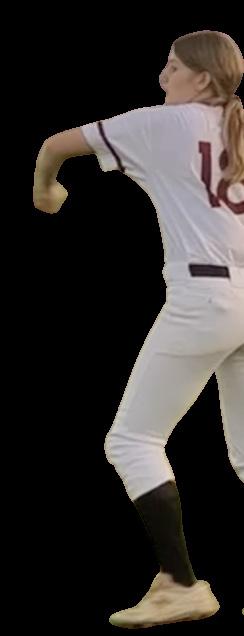
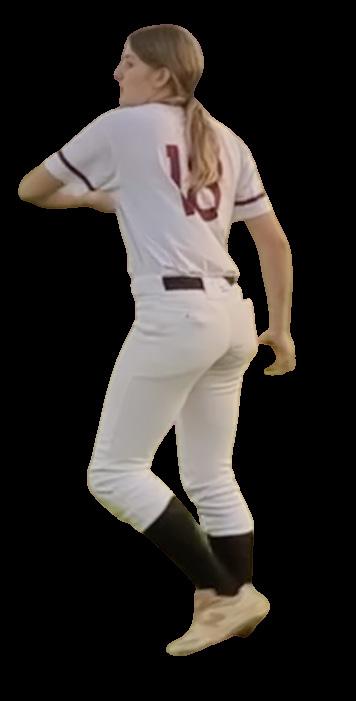

The sport softball started in 1887. While softballs are thrown like baseballs they are pitched underhand. The following infographic below is a step-by-step manual for how to throw and grip a softball.
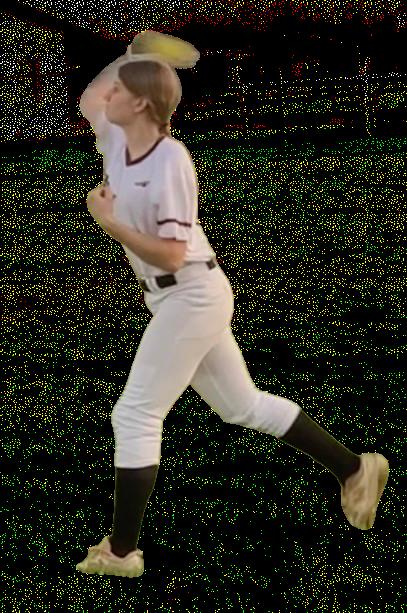
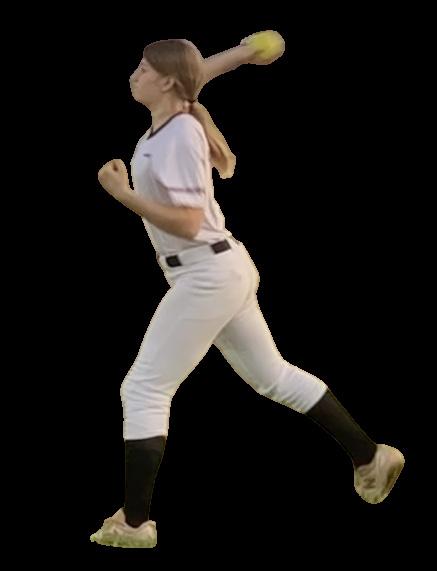
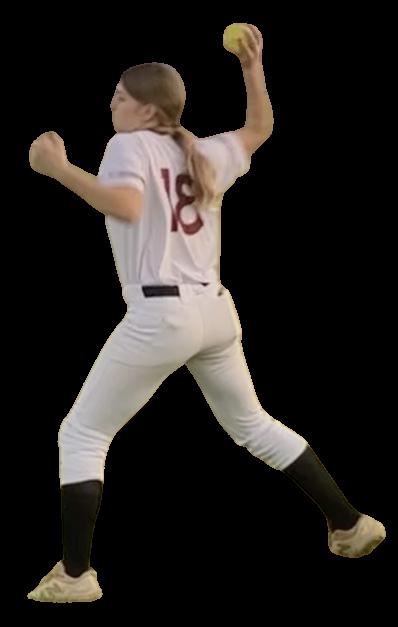
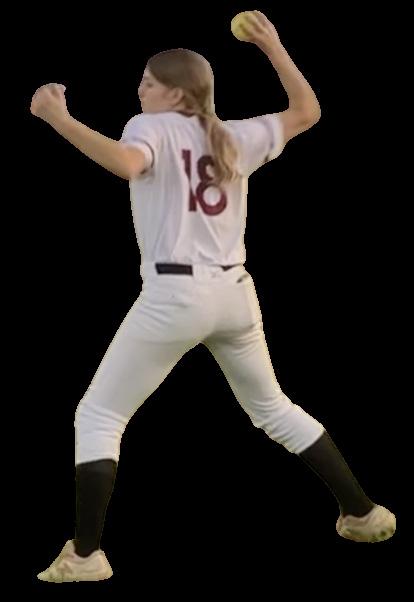

Step 1 - stand sideways to your target.
Step 2 - open your stance, grip the ball (according to the diagram), reach your arm back (slightly bent), and set your arm to your target.
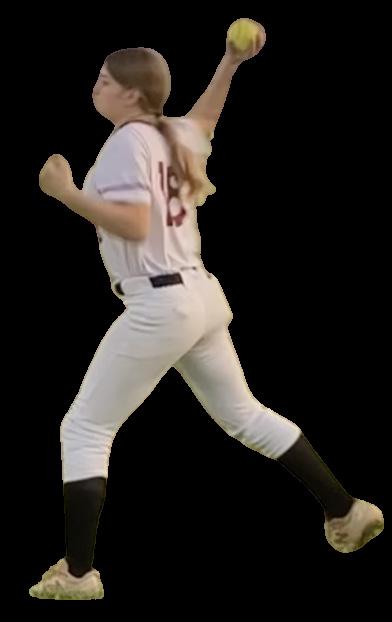
Step 4- Lean on your non-dominant leg then, release the ball.


Step 5- Follow Through.
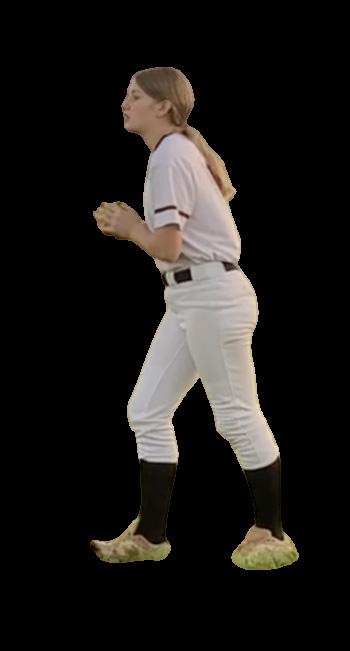
THROW A SOFTBALL How To Hold A Softball
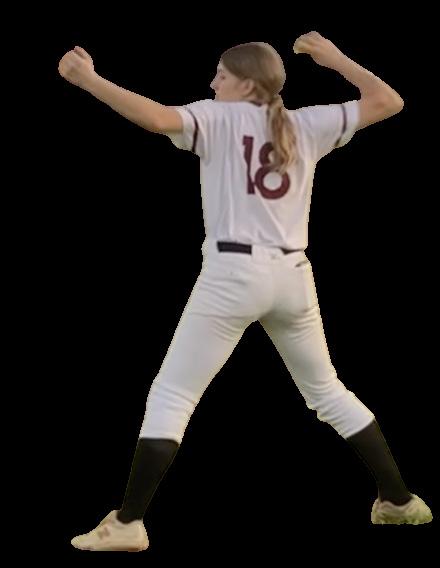


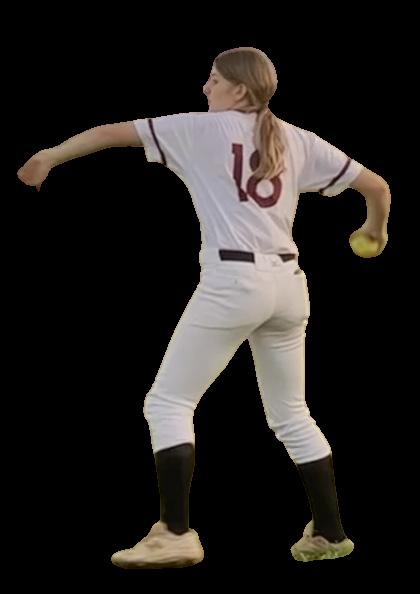
Step 3 - take a step forward with your non-dominant foot.













































































 By: Joaquin Cruz
By: Joaquin Cruz
 “Tracing of Phil Jackson Coaching Michael Jordan and Kobe Bryant”
“Tracing of Phil Jackson Coaching Michael Jordan and Kobe Bryant”




























